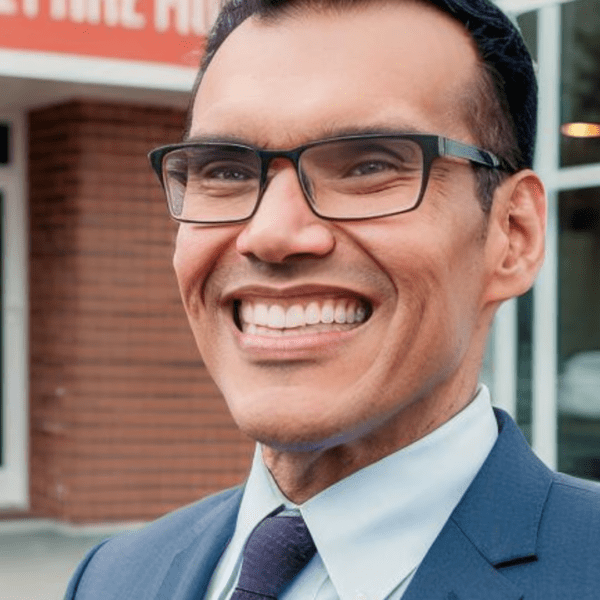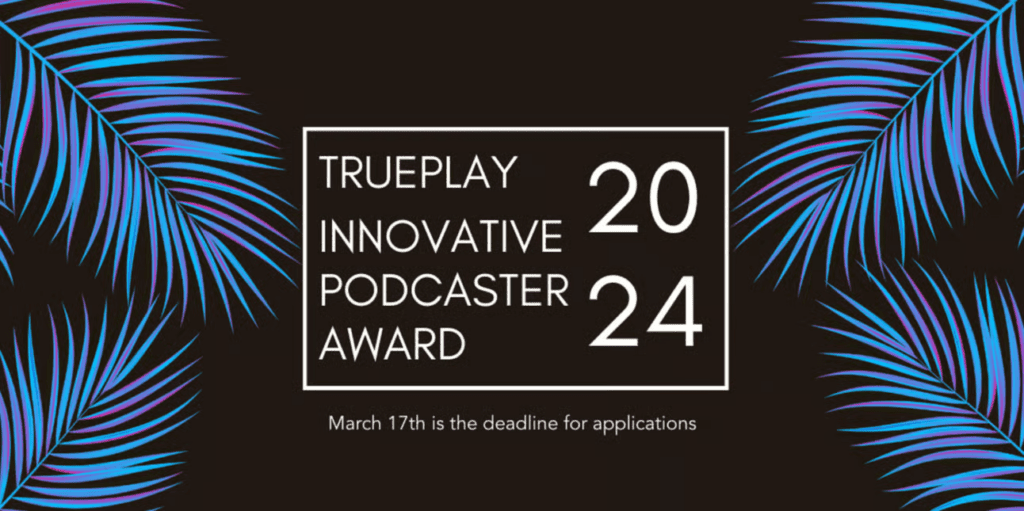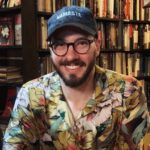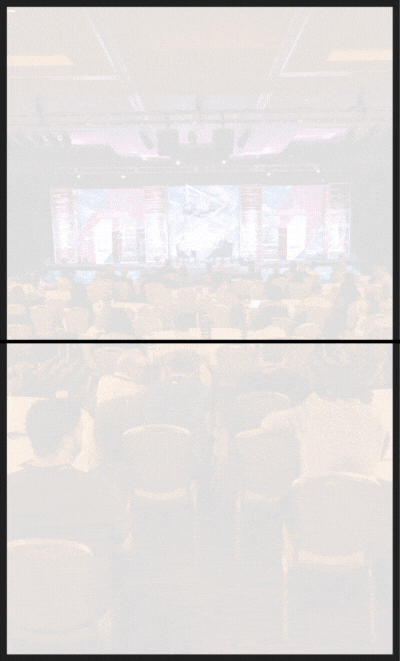
Presented by Disctopia
Growing up should mean feeling ever less unique—in painful and redemptive ways.
The School of Life
💪 Lessons from Summer Bodies
They say summer bodies are made in the winter. It takes time to change, to curb bad habits and replace them with positive ones, to become the version of ourselves we aspire to be.
Ditto for podcasting. The better versions of our shows aren’t achievable in a day. But right now is the best time to fashion our roadmaps. And today is the best time to shift into drive.
The TruePlay Innovative Podcaster Award recognizes outstanding achievement in podcast production, encompassing storytelling, ingenuity, captivating audience interest, and technical finesse. Applicants are encouraged to submit podcasts in any genre or theme, emphasizing innovation, engaging content, and impactful delivery. A grand prize of $5,000 will be awarded.
🎙️ Signal Flow: Ernesto Aguilar
Industry game changers and valiant minds from creative professions share their wisdom, adversities, and paths to innovation.

Born in East Houston, Ernesto Aguilar’s life was transformed by public media. His career has traversed daily newspapers and alternative weeklies to public radio news and program director roles. At KQED, he oversees radio broadcast content and DEI initiatives in the organization's Content division. Prior to KQED, Aguilar served stations nationwide for five years as executive director of the National Federation of Community Broadcasters. A Robert C. Maynard Institute for Journalism Education Fellow, Sulzberger Executive Leadership Fellow, and Public Media CEO/COO Bootcamp graduate, Aguilar has a B.A. in journalism, with minors in sociology and Women’s Studies from the University of Houston. In his spare time, he writes OIGO, a newsletter on public media and Latino audiences.
I believe in public radio because it changes lives. It changed my life.
In the public radio business, we have this term called “backseat baby.” Which is people who grew up around NPR because their parents raised them on it while taking them to school. I was not a backseat baby, I didn’t grow up around public radio at all.
My father was in the military, so we had lights out at 9pm. However, when I was 16 years old, like everybody else that age, I was not sleeping at nine o'clock at night. So I would be awake, laying there with the lights out. But I discovered that I could listen to the radio in the room that my brother and I shared, and not wake up my parents.
On a Monday night around 11pm, I stumbled upon public radio. It was like someone had walked up to my bedroom wall and showed me there was a window to a place I had no idea existed. I was exposed to ideas and culture and arts and ways of thinking. I had this chance to see a different world.
I went from being the high school newspaper nerd, to being the college newspaper nerd, to being the large metro newspaper reporter nerd, and then went into radio broadcasting. I'm the only person from my family who graduated from college because I was driven to be a journalist. And I owe that to public radio.
Public radio has set the standard for storytelling. Think about a program like This American Life. A lot of people have learned how to tell stories in that way. Serial was born out of This American Life and public radio. That has shaped podcasting, YouTube, and TikTok, almost in the Marshall Ganz style of storytelling.
Marshall Ganz, the legendary speechwriter for Barack Obama and many others, has a style of speech writing—the story of self, the story of us, and the story of now. It’s very similar to public radio, where you understand this person's story, how it relates to you, and how it relates to the context of the world around us. And public radio has mastered that for many, many years.
If you’re a podcaster who's curious about getting into broadcast and partnering with public radio stations, there are some things you need to be familiar with. FCC rules, first and foremost. You need to know the rules because you don't want to show up at a station and not understand what those mean. Product placements as profanity, all these other things will earn the station, and earn you personally, a very sizable fine from the FCC if it goes out across the air.
Also, know what a broadcast clock is. If you're not familiar with what a broadcast clock is, Google “NPR network clock.” Every program on broadcasts, particularly for public radio, abides by a broadcast clock. Which means that with every program, there are signposts where there are news breaks or breaks stations take, there are different kinds of segments that your podcast needs to be structured around. And you need to be able to meet those breaks precisely because a lot of stations work with automation. They've got underwriting spots, they've got traffic, weather, they've got local audience services that need to be there, and station IDs.
When you pitch your show, be able to articulate what your brand is—who you are and what you are. So that a program director understands it in 15 seconds, because most of our inventory for announcements and promotions are 15 to 30 seconds. You need to be able to articulate what your brand is, what the program is about, and how it touches on what public radio audiences are interested in.
You’ll also need data about how many people listen, how long they spend listening, what kind of demographics you have, etc. You need to be able to tell your own story in a way that helps a station understand what kind of value you bring.
And finally, there’s episode length, season length, and budget. Maybe you only want this for a four-episode special. Or 52 weeks a year, every year for the next 20 years.
When reviewing potential new content for KQED, we have quite a few things to consider. Does this connect with a new audience that we can demonstrate? Are there collaboration opportunities? Are there ways we can build up from here? Does it feel like public radio wants to bring something fresh? Does this program maintain a level of consistency our audience knows and expects? Does it sound like public radio, while still leaning into what I believe are the surprises and delights that come when you listen to public radio, just as I did when I was 16? Listeners want to feel like they've learned something. They want to feel like they've gotten something special introduced to their lives. Does this program do that?
To boil it down, stations will want to know: What is it, and how much is it?
Our most popular show is Wait Wait…Don't Tell Me. It goes back to those core values: you learn something, but you're also surprised by it. And it just makes your weekend.
One show that’s very popular with audiences, but also seems odd that it works, is PBS NewsHour. It’s one of the most popular programs we have, although it’s a TV program airing on the radio. And people go, how does that work? Again, same values. Interest me, teach me something, show me something I didn't know or help my understanding grow, and show me a deeper side of the story.
Podcasts are doing a lot of fantastic innovations that public radio is adapting to and learning from. We may have laid the concrete, but podcasting is building new roads and constructing new on-ramps for audiences.
Some of the best advice I’ve gotten was to think not about the opportunity that's in front of you. Think about what that opportunity means for the next opportunity.
I think we're all going to learn together in this. I believe that whether you’re in public radio or podcasts, we’re all fellow travelers. And we’re better in that space working together than if we think we're at odds.
Further Exploration
After a conversation with a friend left him wondering if he complained too much, photographer Sean Tucker asks himself a tough question: What are you complaining about? The resulting meditation is a universal insight into the impact of negative thinking on creative work.
ICYMI:
Enjoying The Noise Gate? Why not share it with a fellow podcaster?
Until next time, have a bold week.
– Doug
For advertising information, contact Kristy at kristy@podcastmovement.com







Join the Movement